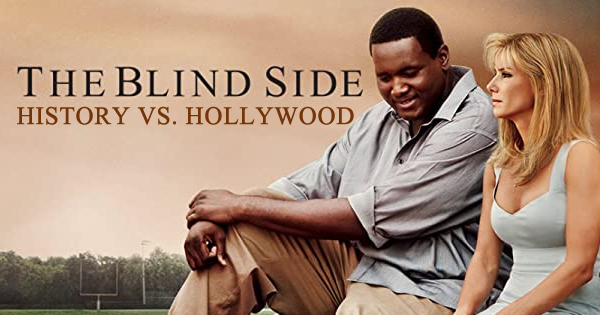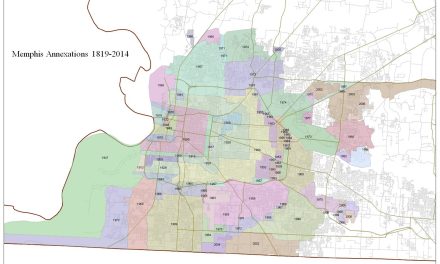Photo Credit: History vs. Hollywood
By John Branston
So the hit movie “The Blind Side” was based on possibly actual events based on other sort of actual events based on selected actual events as portrayed by actors and written by screenwriters to make lots of money? Got it? Me neither.
“The Blind Side” book by Michael Lewis was a masterfully written sports-wonky study of the evolution of pro football centered on offensive tackle Jonathan Ogden of the Baltimore Ravens. (The blind side is the quarterback’s blind side which requires a really good huge player to protect him.)
Memphian Michael Oher was a supporting player – a homeless, dead-end kid, school dropout going nowhere until Sean Tuohy and his wife Leigh Anne welcomed him to their fancy home and got him into Briarcrest and Ole Miss where he excelled and went on to a lucrative career in pro football.
If the movie version seemed too good to be true – fearsome Black kid becomes teddy bear in White family which gets him into Christian high school with great football field and SEC football college – it must be said that the lawsuit version seems too bad to be true. Whether or not the Tuohys saw dollar signs along with better angels, Oher was certainly better off with them than he was on the mean streets of Memphis, and he (and his agent) made lots of money in the NFL no matter what he did or did not make from the movie.
Lawyers have been known to spin a story as well as screenwriters. Formal adoption? Conservatorship? Zzzzzzz. Isn’t there, like, an indictment of a former president going on? Oher’s lawsuit will be settled, probably soon, now that it has made national news.
The more interesting story is the popularity of movies, dramatic television series, and news networks “based on actual events” that are lot more far-fetched and important than a football footnote. Add to that the devaluation of reporting in local and national print media in favor of click bait – junk sports, food, news, rumors, music or AI that may or may not even be real much less true.
My favorite fake-true movies “based on actual events” include The Alamo, Elvis, The Help, Wild, Till, and the Green Book. My favorite storytellers are writers and reporters who go to great and sometimes dangerous lengths to talk face to face with real people on their turf and then write about it at length or under deadline.
Two of the greatest ever were war correspondent Ernie Pyle who died under fire and Martha Gellhorn who said she would rather spend time under fire on a crowded stinking sinking freighter than on a cruise ship. If they said somebody said something or did something you could bet on it.
Same goes for hardcores Paul Theroux, who dutifully gets real names and correct spellings in his travel books; Sebastian Junger, who wrote in the introduction to “Tribe” that “speech enclosed by quotation marks should be documented with a tape recorder or notebook; and columnist Rheta Grimsley Johnson, who wrote for The Commercial Appeal, Atlanta Journal-Constitution and King Features and traveled thousands of miles a year in her car to interview real people in the South.
We could use more like them but it ain’t gonna happen.
***
John Branston covered Memphis as a reporter and columnist for 35 years. He is author of Rowdy Memphis: The South Unscripted.
d




